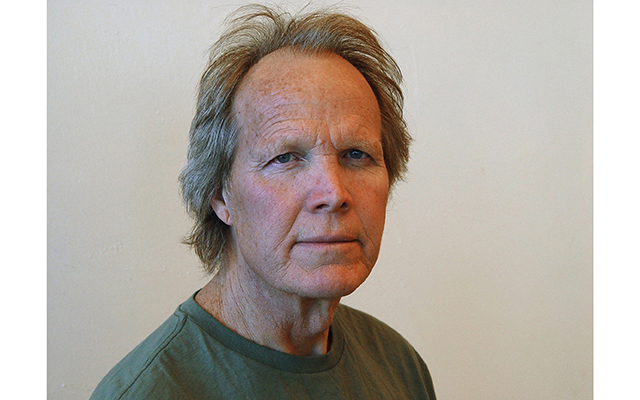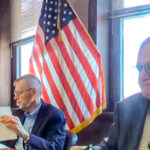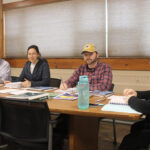Anderson Giles, of Presque Isle, has researched and documented World War II history since the 1980s. His connections with the historic war run deep in his family.
Giles’ father, Sargent H.A. Giles Jr., fought in the 4th Marine Division during World War II on the Pacific Islands and participated in storming the islands of Saipan, Tinian and Iwo Jima. When Giles was 4 years old, his father served in the 1st Marine Division during the Korean War and died in combat.
Growing up without a father left a void in Giles’ life. He learned more about his father’s military service as he got older and decided that one day he would visit the islands where his father fought during World War II.
The island of Tinian holds special meaning in Giles’ research. Tinian was the site where crews assembled the atomic bombs that fell on the Japanese islands of Hiroshima and Nagasaki in August 1945, near the end of World War II. Giles’ uncle was a 67th Battalion seabee on Tinian. He helped build the bomb loading pits and the runways that the B-29 bombers Enola Gay and Bockscar launched from.
In the 1980s, Giles saved enough money to buy a ticket to the island of Guam, then Saipan, and took a small boat to Tinian. He explored the jungle that had grown over the atomic bomb assembly site. With the help of stories that his uncle had told him and the natives of Tinian, Giles found the site. The trip marked the beginning of several decades of research on Tinian and other Pacific Islands that has resulted in documentary films, photographs, paintings and reunions with veterans of the atomic bomb missions.
“It was a sobering and humbling experience to stand where that bomb was assembled and taken to the loading pits,” Giles said. “This event changed not only war but world history forever.”
Giles, a retired professor of art from the University of Maine at Presque Isle, made two documentaries about Tinian. His 1996 film “The Thunder from Tinian” tells the history of the island from the late 1800s through 1995, with emphasis on the World War II era. “Echoes from the Apocalypse,” released in 2007, follows U.S. and Japanese veterans as they return to Tinian in August 2005 to commemorate the 60th anniversary of the dropping of the atomic bombs.
Over the years Giles has considered himself lucky to return to the Pacific Islands with numerous World War II veterans. From 2002 to 2008 he served as a lecturer on Pacific cruise ships that brought around 300 to 400 veterans back to islands that were once battle sites. Giles would give a lecture about an island’s history before the ship arrived at each island. He thinks that being a photographer, painter and filmmaker allows him to capture the veterans’ visits to the islands in the most truthful ways.
“When I started I wanted to create films that included the veterans while they were still alive and able to comment about their experiences,” Giles said. “Most of the veterans that appear in my first film have passed away. It’s sad for me because I knew all those guys on a personal basis.”
Now, deceased veterans’ children, grandchildren and relatives take their places on Pacific Island tours to see where their loved ones fought. Many relatives of the veterans who led the atomic strike missions have thanked Giles for interviewing the veterans on camera. He views the documentary films, as well as a still in-progress photo series of veterans on the Pacific Islands, as ways to preserve and pass down their stories to future generations.
Getting to know many World War II veterans has also helped Giles learn more about his father. While attending a 4th Marine Division reunion, he went to the podium and announced that he was H.A. Giles’ son. He asked if anyone there had known his father. More than 40 veterans went to Giles and told stories about his father.
“He was quiet. He liked to take pictures and explore. He was one of those people that you only had to tell what to do once and he did it,” Giles said. “In a way it was like all these guys were my father because they had been through some of the things he’d been through.”





